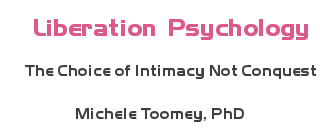|
How fitting. One week ago we are watching on television the explosion of a plane used as human bomb and you topple over on your head with an almost seizure. We are not attending to your stress as we watch in horror. We are having our own intimate experience with the monumental tragedy. Our personal connection with the horrific events occurring before our eyes envelopes us. We are not even looking at you. You are sitting in back of us. Yet, your few minutes of passing out pulls us immediately back to you.
Fortunately, you are not seriously hurt. Your glasses gouge into your nose, but they do not break. We get wet paper towels for your forehead and a pillow for your head. Then we move you to the couch and cover you. You are all right. Shaken. Out of it, but all right. We return to the television and the ongoing events of the twin towers' collapse. Our struggle of what is fair to you and to us continues to distract. You are safe and away from the television and exposure to the emotionally charged scene that triggered your collapse in the first place. We choose to stay in front of the television. It is such an example of the paradox, personal need and other's need. Whose turn is it, anyway?
One of the imbalances that the aftermath of herpes simplex encephalitis has thrust on us is the priority of your needs. As much as you are willing and committed to fairness, your needs upstage our needs almost all the time. Once the integrity of the system is violated, as it is in your case where your brain is damaged, the balance of fairness is forever affected.
At Bob's wedding, I wanted just to swim and relax and enjoy the lovely day and lovely setting. I saw you turn the timer again and return to the hot tub, even though I had asked you not to stay long in it. I knew I should go over and get you out, but I didn't. Instead, I swam away and did laps, hoping you would be all right. But that was a fantasy I had no right to indulge. Soon Helen was calling to me as I swam. Frantically, she told me to look up at you. You were staggering poolside, swinging your arms limply, trying to walk back to your lounge chair. The intense heat had triggered seizure-like symptoms. You needed attention. You were "out of it" and needed care. The balance of turns was exerting its new out of balance force. It had no choice. Neither did you. Neither did we.
The attack on the World Trade Center brought that lesson home. We didn't attend to your stress level and your brain crashed into overload. You had no choice. We had no choice. You needed a turn. You required a turn. We lost our turn. You took your turn. You had to. You had no choice.
Fortunately, you don't in anyway choose to take so many turns. If you did, we would resent you. You try so hard to stabilize yourself, to ground yourself, to take care of yourself. No one works harder at life than you do. No one. So we don't resent you. We can't. Yet, part of us wants to. We want our turn. We want to be free of concern and of attending. We want you to be like you were before you were attacked by the virus. Much like the families of those missing in New York, who want to believe their loved one will miraculously be found alive, we want you to be your old self and not in need of a turn.
Well, wishful thinking is just that, wishful thinking. The balance of turns will never be the same again. But as we struggle to live with that harsh reality we are reminded of the imbalance within your system that you contend with every waking moment . You never get ease. You never get anything without great effort. You never really get the turn you want, the turn of normalcy and a healthy brain that functions effortlessly.
Your life is now perpetual effort to function safely - to being as self-sufficient as you can be is sterling. The imbalance is first and foremost yours to bear. We are challenged to join you there. It is heavy and wearing as well as tiring and wearying, but it is also intimate and loving, admirable and inspiring. We are proud of you even as we are tired of you. Yet, we love you and embrace you. Life is hard, but we are fortunate to be alive. Life is a gift as well. May we continue to know that and not get caught in hard.
|



